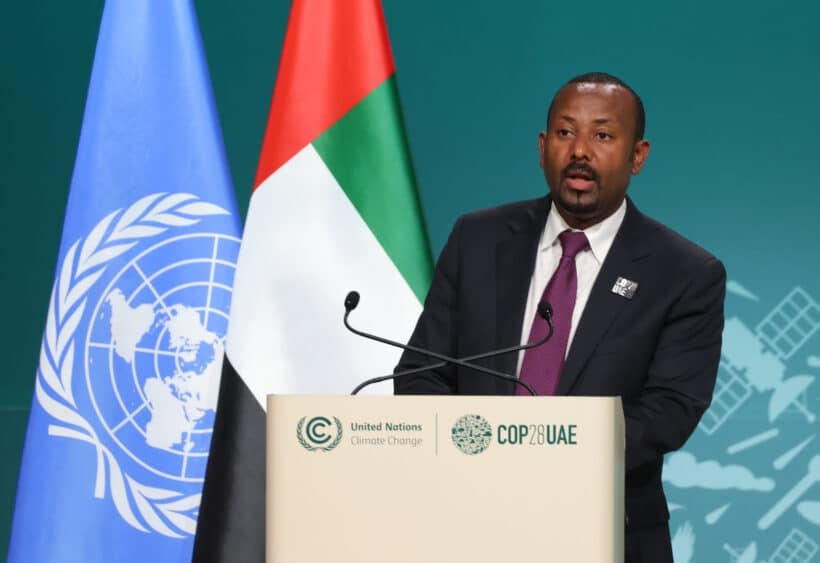
ADDIS ABABA, Aug 2 (Reuters) – Ethiopian Prime Minister Abiy Ahmed has defended this week’s switch to a market-determined foreign exchange rate, saying it aimed to close the gap between the official and black market rates and did not amount to a devaluation of the birr currency.
The central bank allowed the birr to float freely on Monday, fulfilling a key condition to secure financial support from the International Monetary Fund and other creditors, and to put the nation’s long-delayed debt restructuring back on track.
The birr has since then lost 31.5% against the dollar, to trade at 83.94 per greenback, the country’s biggest lender, Commercial Bank of Ethiopia, said on Friday, and some economic analysts and commentators have voiced concern that inflation could surge.
“Saying Ethiopia has devalued its currency is wrong,” Abiy said late on Thursday in a televised briefing to explain the new policy.
“There were two markets. One is 100 and the other is 50. So when the gap between the two became wide, it brought many dangers. So what we said (the two) should be unified,” he said.
While lifting foreign exchange trading restrictions helped Ethiopia clinch the IMF deal and funding from other creditors including the World Bank, concern about the policy’s inflationary impact on low-income households has led at least two local governments to crack down on shops raising prices.
The government and its creditors say the liberalisation will help the private sector make a bigger contribution to the economy and boost long-term growth.
Hours after floating the currency, Ethiopia got a new financing deal of $3.4 billion from the IMF, a move a senior finance ministry official said would make way for the completion of its debt restructuring in the next three to six months.
Soon after, the World Bank approved $1.5 billion in financing for its first ever budget support lending to Ethiopia. Abiy said the new financing would save $200 million from the restructuring of its $1 billion Eurobond.
(Reporting by Dawit Endeshaw; Writing by George Obulutsa; Editing by Duncan Miriri and Helen Popper)

